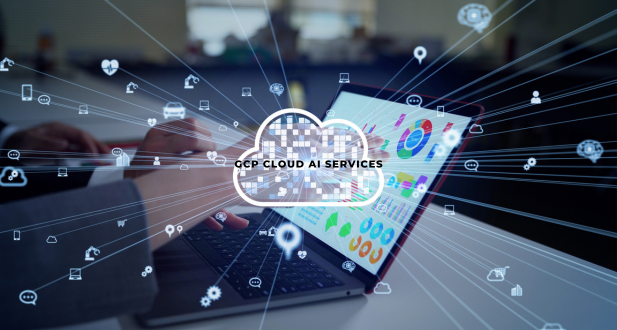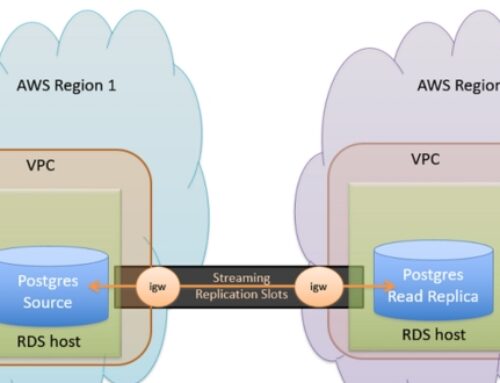Introduction
In the dynamic and ever-changing realm of cloud computing, Google Cloud Platform (GCP) has positioned itself as a frontrunner, providing an extensive array of services designed to meet the varied demands of businesses. Among its key strengths, GCP stands out for its formidable suite of artificial intelligence (AI) services. These services form a crucial part of the platform, enabling organizations to unlock the full potential of machine learning and advanced analytics. This article will undertake a comprehensive exploration of the diverse AI services offered by GCP, aiming to elucidate their functionalities, practical applications, and the transformative impact they can wield on businesses.
GCP’s AI Services Overview
Google Cloud Platform’s AI services encompass a wide spectrum, ranging from natural language processing to computer vision and beyond. The platform integrates cutting-edge technologies, such as machine learning and deep learning, to provide a robust foundation for building AI-driven applications. GCP’s AI services are crafted to be accessible to a broad audience, from seasoned data scientists to businesses exploring AI for the first time. This inclusivity is a testament to GCP’s commitment to democratizing AI, making advanced technologies more approachable and actionable for organizations across diverse industries.
Each AI service within GCP boasts specific capabilities tailored to address distinct business challenges. For instance, the natural language processing capabilities can be harnessed for sentiment analysis in customer feedback, while computer vision services enable image recognition and analysis. GCP’s AI services find applications across industries, from healthcare and finance to retail and manufacturing. The versatility of these services is a key driver behind their widespread adoption, offering organizations the flexibility to tailor AI solutions to their unique requirements.
Overview of Google Cloud Platform
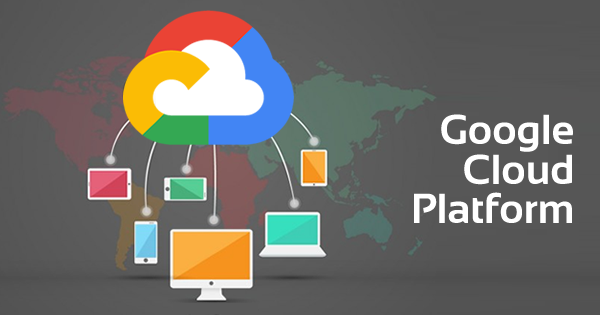
Before delving into the AI services, it’s crucial to understand the foundation on which these services are built – Google Cloud Platform. GCP is a suite of cloud computing services provided by Google, encompassing infrastructure, data storage, analytics, and machine learning. The platform leverages Google’s vast infrastructure and cutting-edge technologies, making it an attractive choice for businesses of all sizes.
Core AI Services
Cloud Vision AI
Cloud Vision AI is a comprehensive solution that empowers businesses to seamlessly incorporate advanced image recognition capabilities into their applications. Leveraging Google’s cutting-edge machine learning models, this service excels in analyzing images to identify objects, recognize text, and comprehend the overall context of visual content. The versatility of Cloud Vision AI positions it as a valuable asset across various industries.
In healthcare, it can be employed for tasks like medical image analysis, aiding in diagnostics and treatment planning. In the retail sector, businesses can leverage it for efficient product identification, enhancing inventory management and customer experience. Similarly, in manufacturing, Cloud Vision AI can contribute to quality control processes, ensuring the production of high-quality goods.
Cloud Natural Language Processing (NLP)
The Cloud Natural Language Processing (NLP) service provides businesses with a powerful tool to extract meaningful insights from unstructured text. Capable of analyzing sentiment, identifying entities, and extracting information, Cloud NLP offers a deeper understanding of textual data, unlocking valuable information hidden within vast amounts of content.
Industries can utilize sentiment analysis to gauge customer feedback, enabling businesses to make informed decisions based on public perception. Entity recognition proves beneficial for content categorization, facilitating efficient organization and retrieval of information. Additionally, content summarization can distill key information from large volumes of text, aiding in information retrieval and decision-making.
Cloud Translation API
Breaking language barriers, Cloud Translation API is designed to facilitate seamless translation of text across different languages. With support for a wide array of languages, this service can be effortlessly integrated into applications, offering a global reach for businesses aiming to communicate effectively in diverse linguistic environments.
Multinational businesses can leverage Cloud Translation API for real-time translation in customer support interactions, ensuring effective communication and support for customers worldwide. Content localization, another use case, allows businesses to tailor their content to specific regions, enhancing user engagement and market penetration. Moreover, the service fosters global collaboration by overcoming language differences in various collaborative projects.
Cloud Speech-to-Text and Text-to-Speech
Cloud Speech-to-Text and Text-to-Speech services provide a dynamic solution for converting spoken language into written text and vice versa. Cloud Speech-to-Text supports multiple languages and excels in handling diverse audio formats, making it a versatile tool for various applications.
Organizations can employ transcription services for recorded meetings, facilitating documentation and information retrieval. Voice commands in applications enhance user experience and accessibility, allowing users to interact with technology in a hands-free manner. These services also play a crucial role in providing accessibility features for differently-abled users, enabling a more inclusive digital environment.
Advanced AI Services
Cloud AI Platform
Cloud AI Platform stands as a robust solution in the realm of artificial intelligence, providing a comprehensive suite for constructing, training, and deploying machine learning models on a large scale. It accommodates popular machine learning frameworks and fosters collaboration among data scientists and engineers.
Use Cases:
Businesses can harness the capabilities of Cloud AI Platform for diverse tasks, including predictive analytics, recommendation systems, and fraud detection. This platform serves as a versatile tool for organizations seeking to implement advanced machine learning solutions across various domains.
Cloud AutoML
In contrast to Cloud AI Platform, Cloud AutoML is tailored for users with limited machine learning expertise. It simplifies the model training process, breaking down barriers and making machine learning accessible to a broader audience, including those without extensive technical knowledge.
Use Cases:
Cloud AutoML enables businesses to create custom machine learning models for specific tasks, such as image recognition, without necessitating an in-depth understanding of machine learning. This democratization of machine learning empowers non-experts to leverage AI in their applications effectively.
Cloud Video AI
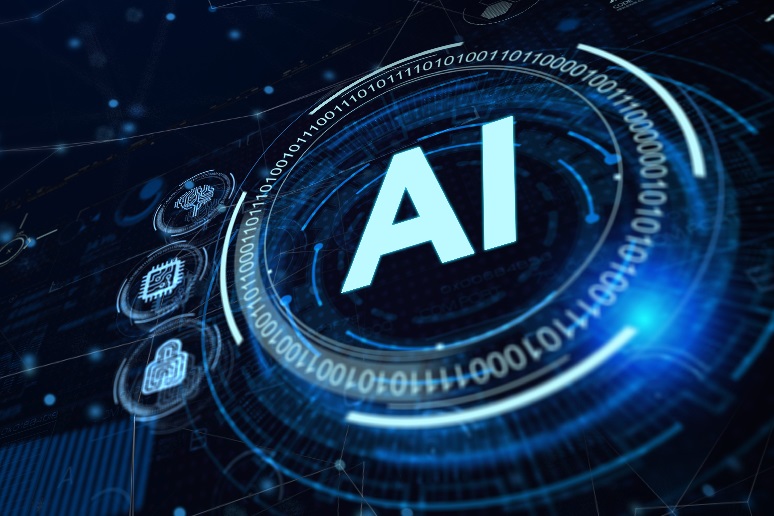
Designed specifically for video analysis, Cloud Video AI offers specialized capabilities like object tracking, content moderation, and event detection. It excels in processing large volumes of video data in real time, providing valuable insights for applications requiring dynamic and rapid video analysis.
Use Cases:
Cloud Video AI finds application in diverse scenarios, including surveillance systems where real-time object tracking is crucial, content moderation for video platforms to ensure compliance with guidelines, and sports analytics where the detection of specific events enhances performance analysis. This service caters to the growing demand for sophisticated video analytics solutions across industries.
Real-world Implementations
Healthcare:
In the realm of healthcare, real-world implementations of artificial intelligence have significantly impacted diagnostic procedures. One notable use case involves the integration of Cloud Vision AI for medical image analysis. This technology is employed to assist radiologists in interpreting complex data from X-rays, MRIs, and CT scans. By harnessing the power of machine learning, the system can swiftly and accurately identify patterns indicative of various medical conditions. This not only expedites the diagnostic process but also serves as a valuable second opinion, enhancing the overall efficiency of healthcare professionals in providing accurate and timely diagnoses.
Retail:
Artificial intelligence finds practical applications in the retail sector, particularly in understanding customer preferences and improving product offerings. Cloud Natural Language Processing is a key tool used for analyzing customer reviews and feedback. This technology enables retailers to extract meaningful insights from vast amounts of unstructured data. By discerning sentiments and identifying recurring themes, businesses can adapt their strategies to meet customer expectations more effectively. The implementation of AI in retail exemplifies how advanced analytics can be leveraged to refine product development, enhance customer satisfaction, and ultimately drive business success.
Finance:
The finance industry has embraced artificial intelligence to fortify its security measures, with a notable use case being fraud detection. Cloud AI Platform is deployed to scrutinize financial transactions and detect anomalous patterns that may indicate fraudulent activity. This proactive approach enhances the overall security of financial systems, protecting both institutions and their clients from potential threats. The real-time analysis of vast datasets allows for swift identification of irregularities, enabling financial institutions to take immediate action to mitigate risks and safeguard the integrity of their operations.
Manufacturing:
In the manufacturing sector, the implementation of artificial intelligence has revolutionized quality control processes. Cloud Video AI is utilized to monitor and analyze manufacturing procedures, specifically focusing on identifying defects and ensuring product consistency. By employing machine learning algorithms, the system can quickly recognize deviations from established quality standards, facilitating early intervention to rectify issues. This not only enhances the overall quality of the manufactured products but also streamlines the production process, reducing waste and improving efficiency. The real-world application of AI in manufacturing exemplifies its role in ensuring precision and reliability in industrial processes.
Challenges and Considerations in Implementing GCP’s AI Services
One primary concern when utilizing Google Cloud Platform’s (GCP) AI services is the aspect of data privacy. As businesses leverage these advanced AI capabilities, they often deal with vast amounts of sensitive and proprietary data. It is crucial for organizations to implement robust security measures to safeguard this data from unauthorized access or potential breaches. Striking a balance between the benefits of AI and the protection of sensitive information becomes paramount, necessitating thorough consideration and implementation of privacy protocols.
Another critical consideration is the issue of model fairness and bias. AI models, including those provided by GCP, are trained on diverse datasets, and if not carefully curated, these datasets may contain biases that can lead to unfair outcomes. Ensuring that machine learning models are fair and unbiased is a complex task that demands constant attention. Businesses need to be vigilant in identifying and rectifying biases in their AI models to avoid perpetuating existing inequalities or creating new ones inadvertently.
Furthermore, the implementation of AI services demands ongoing model monitoring and maintenance. Machine learning models are not static entities; they evolve and may require updates to maintain optimal performance. Regular monitoring is essential to detect any deviations from expected behavior, address performance issues, and adapt to changing data patterns. Businesses should establish a robust framework for continuous model evaluation, ensuring that their AI systems remain accurate, reliable, and aligned with business objectives over time.
While GCP’s AI services offer unprecedented capabilities, businesses must navigate several challenges and considerations. Addressing issues related to data privacy, model fairness, and ongoing monitoring and maintenance is crucial for the successful and responsible integration of AI into business operations. By proactively managing these aspects, organizations can unlock the full potential of GCP’s AI services while minimizing associated risks.
GCP Machine Learning Services: Overview
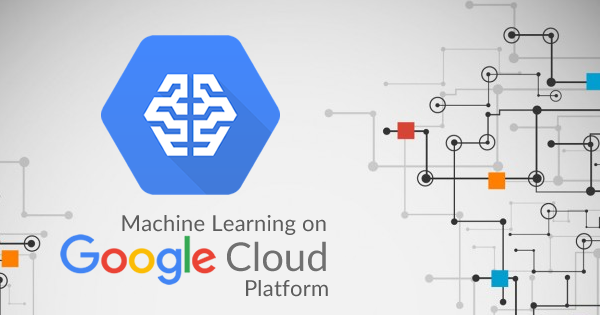
Google Cloud Platform (GCP) offers a suite of machine learning services designed to empower organizations in developing, deploying, and managing sophisticated machine learning models. These services cater to a range of users, from seasoned data scientists and engineers to those with limited machine learning expertise. Three prominent services in this lineup are Cloud ML Engine, AI Platform, and Vertex AI, each serving distinct roles in the machine learning lifecycle.
Cloud ML Engine: Key Features and Use Cases
Cloud ML Engine is a comprehensive service within GCP that facilitates model training and deployment. It provides a scalable and managed environment for training models, supporting both distributed training and hyperparameter tuning. Users can leverage this service to streamline the deployment of trained models, making them accessible via RESTful APIs. Cloud ML Engine is particularly beneficial for enterprises dealing with large-scale machine learning tasks, such as image and speech recognition, as it seamlessly integrates with popular machine learning frameworks like TensorFlow.
AI Platform: Managed Services and AutoML Capabilities
AI Platform is another essential component of GCP’s machine learning offerings. This service focuses on managed services for building, deploying, and overseeing machine learning models. One standout feature is its AutoML capabilities, which empower users with limited machine learning expertise to create powerful models without delving into the complexities of algorithm design. AI Platform plays a vital role in democratizing machine learning, making it accessible to a broader audience. Real-world examples of AI Platform in action include applications in natural language processing, recommendation systems, and predictive analytics.
Vertex AI: Unifying Workflows and Scalability
Vertex AI represents the latest evolution in GCP’s machine learning services, unifying and simplifying machine learning workflows. It serves as a unified platform that integrates multiple GCP AI services, streamlining the end-to-end machine learning process. Vertex AI prioritizes scalability and flexibility, allowing organizations to efficiently manage and scale their machine learning workloads. This service is particularly advantageous for enterprises requiring a cohesive and adaptable solution for their machine learning endeavors.
GCP’s machine learning services, including Cloud ML Engine, AI Platform, and Vertex AI, collectively offer a robust ecosystem for organizations to develop, deploy, and manage machine learning models. From advanced users seeking scalability and integration with frameworks like TensorFlow to those with limited expertise relying on AutoML capabilities, GCP’s machine-learning services cater to a diverse range of needs, making machine learning more accessible and powerful for businesses across various industries.
Natural Language Processing (NLP) on GCP
Natural Language Processing (NLP) is a branch of artificial intelligence that focuses on the interaction between computers and human languages. Google Cloud Platform (GCP) offers robust tools and services for NLP, enhancing various applications and solutions. Two key services for NLP on GCP are the Cloud Natural Language API and Dialogflow.
Cloud Natural Language API:
The Cloud Natural Language API on GCP is a powerful tool for text analysis and sentiment analysis. It allows developers to extract valuable insights from text data by determining sentiment, identifying entities, and providing language translation capabilities. Sentiment analysis helps in understanding the emotional tone of a piece of text, which can be valuable for businesses in gauging customer feedback or opinions.
Named entity recognition is another feature of the API, enabling the identification of entities such as people, organizations, and locations mentioned in a given text. This capability is beneficial for applications like content categorization and information extraction.
Language translation is yet another crucial aspect of the Cloud Natural Language API. It facilitates the translation of text from one language to another, supporting global communication and multilingual content analysis.
Practical applications of the Cloud Natural Language API include customer feedback analysis and content moderation. Businesses can leverage sentiment analysis to gauge customer satisfaction, while named entity recognition aids in understanding the entities mentioned in customer reviews. Content moderation, on the other hand, involves filtering and managing user-generated content to ensure compliance with community guidelines and standards.
Dialogflow:
Dialogflow is a comprehensive conversational AI development platform offered by GCP. It simplifies the process of creating chatbots and virtual agents, making it easier for developers to design natural and interactive conversations between machines and users.
One of the primary use cases of Dialogflow is in the development of chatbots, which are computer programs designed to simulate conversation with human users. These chatbots can be deployed across various channels, such as websites, mobile apps, and messaging platforms, providing a seamless and efficient means of interaction.
Dialogflow’s strength lies in its ability to integrate with other GCP services. This integration allows developers to enhance their applications by combining the capabilities of Dialogflow with features offered by other GCP tools. For instance, Dialogflow can be integrated with Cloud Functions for serverless execution or with Cloud Speech-to-Text for converting spoken language into written text.
GCP’s NLP services, including the Cloud Natural Language API and Dialogflow, offer a robust foundation for developing advanced language processing applications. From sentiment analysis to chatbot development, these tools empower developers to build intelligent and user-friendly solutions with ease.
Conclusion
In conclusion, Google Cloud Platform’s AI services provide a powerful toolkit for businesses looking to harness the capabilities of artificial intelligence. From image recognition to natural language processing, GCP’s services cater to a wide range of applications across industries. As organizations continue to adopt cloud-based solutions, understanding and leveraging GCP’s AI services can be a transformative step toward innovation and competitiveness in the digital era.

